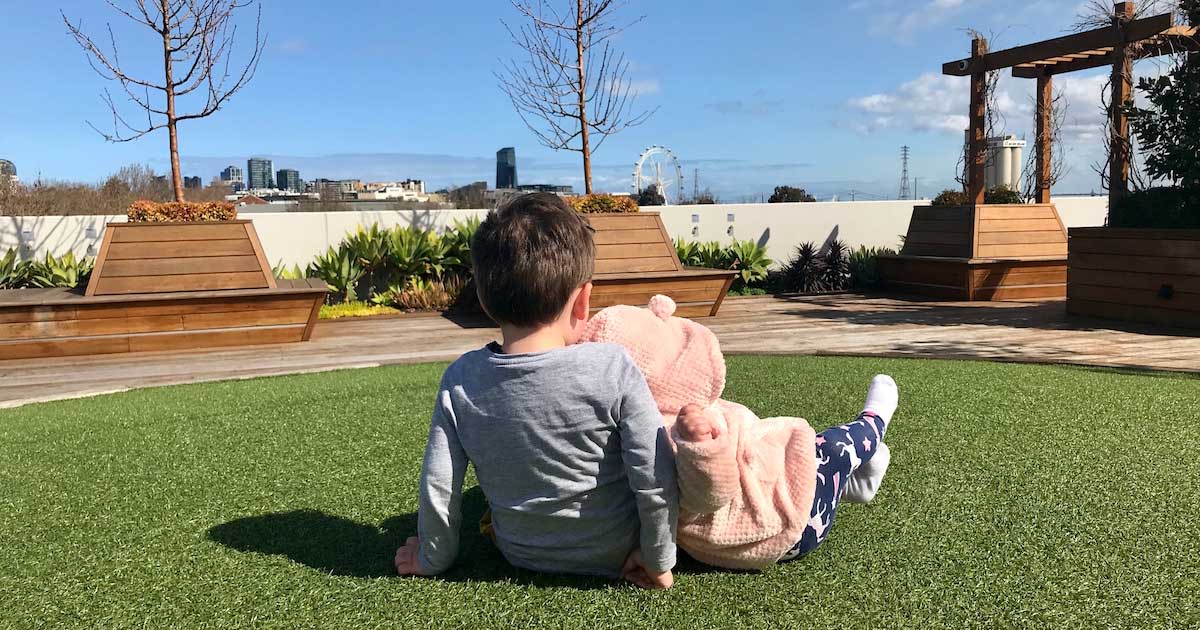
How bush kinder teaches children to be organised and prepared, an experiment in free-to-air TV, and the inappropriate games kids play.
Our selection of thought-provoking and useful resources from around the web on educating and raising children, and supporting families.
Bush kinder has given my four-year-old daughter resilience and readiness for life
(Lucille Wong, The Guardian)
For some parents, ‘bush kinder’ conjures images of children traipsing through a bit of scrub and perhaps figuring out how to climb a tree or two. Bush kinder is a kindergarten program for 3 to 4-year-olds based on nature play. It aims to improve a child’s well-being, social and emotional skills, and cognitive and physical abilities. But for this Melbourne mother, the idea of no technology or toys and being outside – rain, hail or shine – sold it for her.
The writer says that for her daughter, ‘Her time outdoors has sparked a kind of curiosity, confidence and resilience that I had not expected’.
‘She is kept safe while still being exposed to unpredictability’, writes her mother as she talks of exploring the trails on a hot Melbourne day and learning to stay in the shade, in addition to being taught about snake and fire awareness.
Bush kinder has been about learning to be organised and prepared. These are fundamental to being ‘ready for school’, but as the author notes, ‘Bush kinder hasn’t taught her numbers or letters but it has given her stories, experiences and life skills that will ground her for years to come’.
Read the full articleMy kids spent two weeks only watching free-to-air TV. Here's what happened
(Jennifer Leake, ABC Radio Brisbane)
For many parents growing up, the smorgasbord of streaming content wasn’t available when it came to watching television. As the writer shares, being able to skip, pause and repeat shows has changed how our children watch TV.
In an effort to stem the endless arguments over what to watch, the writer decided to see what happened when her three daughters only watched free-to-air television for two weeks.
What resulted was all positive for the author’s family. ‘Fewer arguments between siblings was a massive win for me, but another plus was that their TV diet got a lot more varied,’ she writes.
Associate Professor Liam Burke points out that ‘we are losing the serendipity of running into something you were not expecting to watch. When you are given an abundance of choices, you spend ten or 20 minutes looking for a show and you end up watching nothing or something you already know,’ he says.
The author writes that even after the two weeks passed, her children have stuck with the free-to-air options as they ‘genuinely seem to prefer the variety of curated content’.
Read the full articleKiss Chasey, Twister, Guess Who: The outrageously inappropriate games children play
(Veronica Milsom, ABC Everyday)
Consider for a moment your childhood and the games you used to play – when you weren’t allowed to watch TV and had been instructed to ‘find something else to do’.
Games, like the movies and books of our childhood, it turns out, are also problematic.
‘Think about the racial stereotyping of Cowboys and Indians. Or the consent minefield that is Twister. Even games like Monopoly suggest you can easily commit white collar crime and get out of jail free’, writes the author.
The writer recalls wishing for the schoolyard game Kiss Chasey to be cancelled because she was the one nobody chased. But upon considering the game as an adult, and now a parent herself, ‘Jokes aside, this one is clearly problematic. Add it to the list of games kids should no longer play. Cancelled.’
Like this post? Please share using the buttons on this page.
Read the full articleStay up to date with our newsletter here


